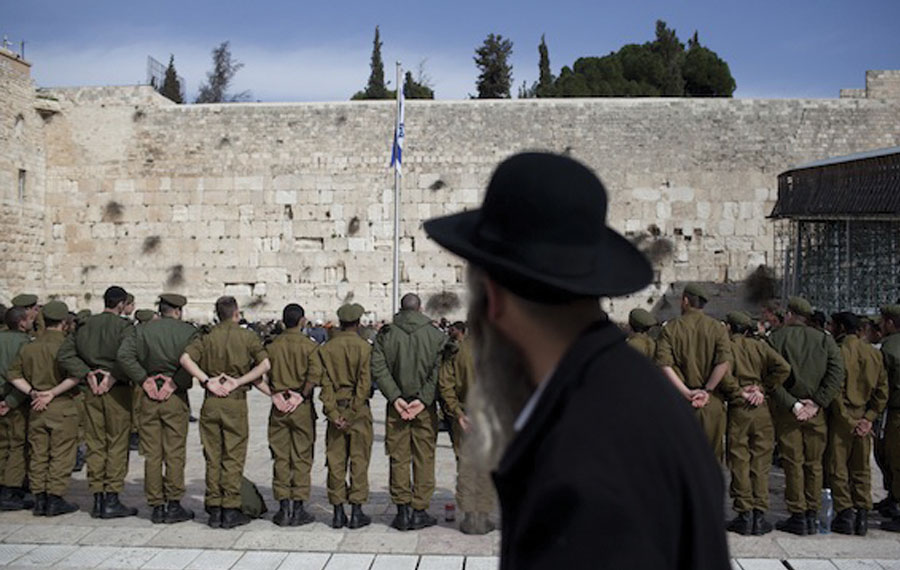
On the surface, the fact that Israel is headed back to elections only weeks after the last one looks like a system failure. It’s never happened before in Israel. The Israeli government will now have spent the bulk of a year in election mode rather than governing mode. There’s something wrong with this picture.
And yet, if we look at the reason for Prime Minister Benjamin Netanyahu’s failure to cobble together a coalition — one party’s refusal to kowtow to religious parties — this “do-over” election presents a unique opportunity for a political upgrade.
Religious parties crave political power because it enables them to fulfill their religious agenda, from refusing to enlist in the Israel Defense Forces (IDF) to forcing Torah laws on the public. Over the years, because Netanyahu has desperately needed their seats to form a majority coalition, he has tolerated their demands.
He probably figured the same thing would happen this time around, but one man stopped him. Avigdor Lieberman, the chairman of the right-wing secularist Yisrael Beiteinu party, decided he had had enough and refused to compromise on a bill to draft Charedim into the IDF.
Normally, Bibi is able to pull things together at the last minute, because Knesset members are loath to jeopardize their positions by going to new elections. In this case, it didn’t work. The Charedi parties threw a few bones of compromise, but Lieberman held firm on sticking to the original draft bill.
This dispute is rooted in the founding of the Jewish state, when Prime Minister David Ben-Gurion made the fateful decision to exempt Charedi men (only a few hundred at the time) from enlisting in the IDF. A well-known Modern Orthodox rabbi in Israel once told me that decision did more to turn off secular Jews to religion than anything else.
“With this unexpected new election, Israeli voters have a chance to put the religious parties where they belong — on the sidelines of political power.”
This makes sense. If you’re an Israeli parent whose children are risking their lives to defend the state, why should Charedi citizens be exempt? And if you see Charedi leaders fighting to keep their community out of the army, how would that make you feel about religion in general?
There are countless other ways that political power in the hands of Charedi parties has become corrosive.
“For too long, this country has been ruled by a Haredi minority,” writes Jerusalem Post Editor-in-Chief Yaakov Katz. “This one group has controlled all matters of religion and state while holding the government hostage, either by preventing public transportation for millions of people who depend on it, or preventing the creation of a civil marriage option for the nearly 450,000 Israelis who might have served in the IDF and risked their lives for Israel, but cannot get married since their father is Jewish but not their mother.”
Charedi intolerance is also a key contributor to the growing schism between Israel and Diaspora Jewry. The equitable compromise to allow egalitarian prayer at the Kotel, painstakingly negotiated by Natan Sharansky a few years ago, was sabotaged by Charedi parties. The list goes on, from overly stringent conversion rules to the rejection and humiliation of non-Orthodox streams of Judaism.
How could this be good for the Jews or for Israel?
The crazy thing is, I feel at home in the Charedi world. I love praying with them. I love their shtibls, their chanting, their learning, their passion and intensity.
What turns me off is when they become power-hungry politicians.
“Religion ought to be a beautiful thing, not a political thing.“
I’m not naive. I get that Charedi politicians must love their political power and will do whatever it takes to keep it. I’m sure they’ve convinced themselves they’re doing God’s work when they impose their religious ideals on the public.
But the majority of Israeli voters don’t like it. They’re as turned off as anyone by religious coercion. Now, with this unexpected new election, they have a chance to put the religious parties where they belong — on the sidelines of political power.
There are some problems in Israel that are intractable, like making peace with the Palestinians. Reducing the enormous influence of Charedi parties should not be an intractable problem. It should be a top priority for voters and for any future leader trying to put together a governing coalition — if not Netanyahu, then for whomever succeeds him.
Religion ought to be a beautiful thing, not a political thing. Religious leaders have every right to inspire people to become more religious and God-fearing. But when they impose rather than inspire, they end up hurting what matters most to them —their own religion.






















 More news and opinions than at a Shabbat dinner, right in your inbox.
More news and opinions than at a Shabbat dinner, right in your inbox.